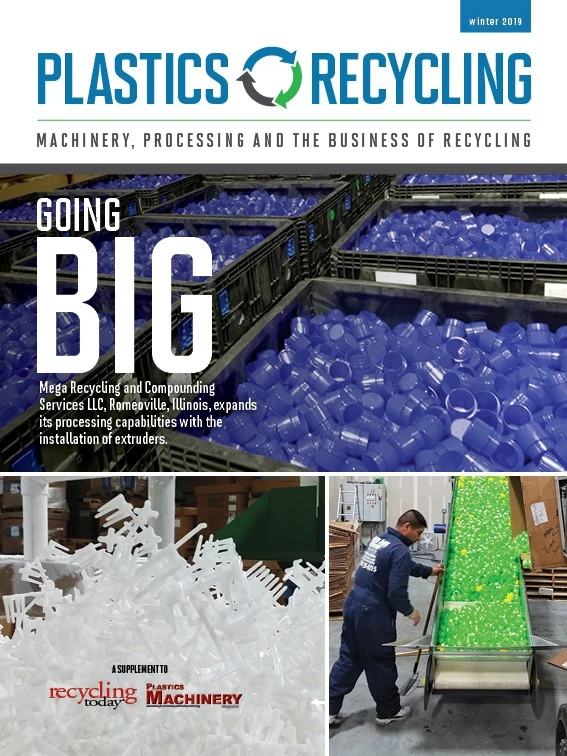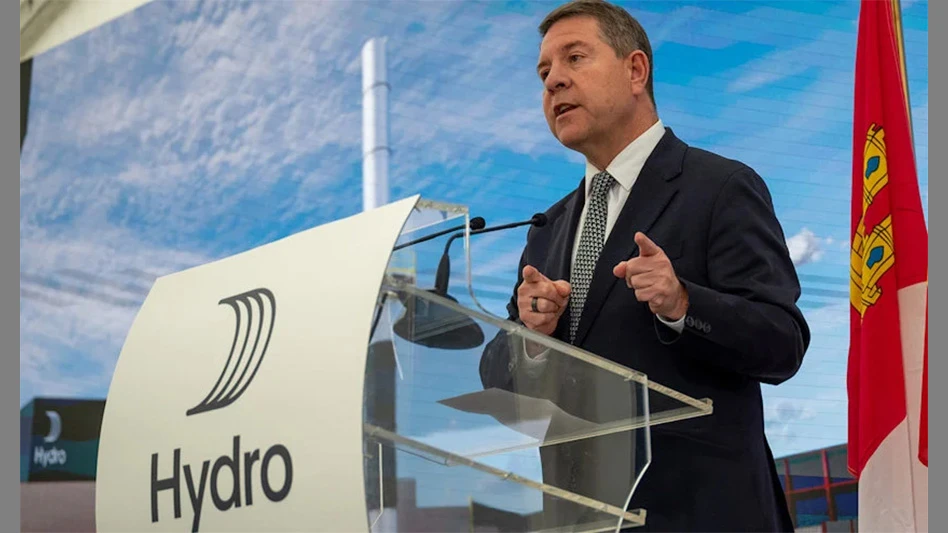
Plastics recycling’s momentum has been increasing over the last year in part because of concerns around single-use plastics and how improperly disposed products can migrate to the world’s oceans.
In this issue’s Product Pull-Through, “Thirsting for recycled plastics,” Fernando Mercé, president and CEO of Nestlé Waters North America (NWNA), says: “We want to take the ‘single’ out of ‘single-use’ bottles. Our bottles were never meant to be thrown in the garbage—we carefully design them to be collected, recycled and repurposed.”
NWNA recently announced its intention to use 25 percent recycled plastic across its U.S. portfolio by 2021, reaching 50 percent by 2025. However, the company acknowledges that work must be done to ensure an adequate supply of food-grade recycled polyethylene terephthalate (rPET) is available.
For NWNA, bottle design is one component that affects bottle recyclability. Company Group Marketing Manager Pia Baker says, “We are doing ourselves a disservice if we can’t recycle our products.”
Another component is educating consumers on how to properly recycle and providing them with access to recycling. NWNA says it is investing in these areas, as well.
China’s ban on postconsumer plastic scrap imports also has helped to add urgency to issues surrounding plastics recycling as countries look to develop domestic solutions for recycling this material rather than exporting it to China for processing.
In the Industry Advocacy article, “The other side of the sword,” Kim Holmes of the Plastics Industry Association (PLASTICS), Washington, details the many plastics recycling investments and partnerships that have been announced in the last year. Many of these investments involve chemical recycling, which has been touted by some technology developers for its ability to produce near-virgin-like plastics, and companies that have not traditionally been involved in the recycling sector.
Holmes also mentions some of the commitments consumer product companies and retailers have made to increase the use of recycled plastics in their packaging. Recycled content commitments from NWNA and these other companies further contribute to the momentum that has been building around plastics recycling. Assured demand allows recyclers to invest in the technology and personnel they need to produce quality recycled plastics.
As many of the success stories in this sector have illustrated over the years, for plastics recycling to be successful, collaboration throughout the supply chain is necessary. These recent announcements are encouraging, as is the momentum they lend to the plastics recycling industry.
Get curated news on YOUR industry.
Enter your email to receive our newsletters.

Explore the February 2019 Plastics Recycling Issue
Check out more from this issue and find your next story to read.
Latest from Recycling Today
- Toppoint Holdings expands chassis fleet
- Lego creates miniature tire recycling market
- Lux Research webinar examines chemical recycling timetables
- Plastics producer tracks pulse of wire recycling market
- Republic Services, Blue Polymers open Indianapolis recycling complex
- Altilium produces EV battery cells using recycled materials
- Brightmark enters subsidiaries of Indiana recycling facility into Chapter 11
- Freepoint Eco-Systems receives $50M loan for plastics recycling facility





